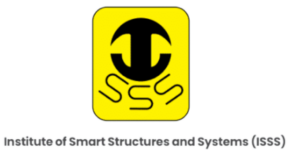Navakanta Bhat received his B.E. in Electronics and Communication from SJCE, University of Mysore in 1989, M.Tech. in Microelectronics from I.I.T. Bombay in 1992 and Ph.D. in Electrical Engineering from Stanford University, Stanford, CA in 1996. Then he worked at Motorola’s Networking and Computing Systems Group under Advanced Products R&D Lab (APRDL) in Austin, TX until 1999. At Motorola he worked on logic technology development and he was responsible for developing high performance transistor design and dual gate oxide technology for PowerPC microprocessors. He joined the Indian Institute of Science, Bangalore in 1999 where he is currently the Dean of Division of Interdisciplinary Sciences and Professor at the Centre for Nano Science and Engineering (CeNSE). His current research is focused on Nanoelectronics device technology, Biosensors for point of care diagnostics and Gas sensors for pollution monitoring. He has 300 research publications in international journals and conferences and 32 patents of which 12 are granted in the US. He was instrumental in creating the National Nanofabrication Centre (NNfC) at IISc, Bangalore, benchmarked against the best university facilities in the world. He has served as the Chair of NNfC administration committee (2010 – 2015) and Chair of CeNSE (2016-2020).
He is an elected Fellow of IEEE, INAE, INSA, and NASI. He has received the Young Engineer Award (2003) from the Indian National Academy of Engineering, Swarnajayanti fellowship (2005) from the Department of Science and Technology, Govt. of India and Prof. Satish Dhavan award (2005) from the Govt. of Karnataka. He is also the recipient of IBM Faculty award 2007 and Outstanding Research Investigator award (2010) from DAE. For his translational research work, he has received Dr. Abdul Kalam Technology Innovation National Fellowship (2018), Prof. Rustum Choksi award for Excellence in Engineering Research (2017), Nina Saxena Technology Excellence award (2018), NASI Reliance Industries Platinum Jubilee award (2018) and BIRAC Innovator award (2018), Distinguished Alumnus award IIT Bombay (2022). He has also received the prestigious Infosys Prize (2018) for his contributions in Engineering and Computer Science category.
Since 2016, he has been member of the Board of Governors IEEE Electron Devices Society (EDS). At present he is also the Vice President Educational Activities, IEEE EDS. He was the Chair of IEEE EDS Nanotechnology technical committee (2017-2019). He was the Editor of IEEE Transactions on Electron Devices, (2013-2015), and the chief-editor of the IEEE TED special issue on “2D Materials for Electronic, Optoelectronic and Sensors”. He is also a member of committee for Semiconductors, of the International Union of Pure and Applied Physics (IUPAP). He was the founding chair of the IEEE Electron Devices and Solid-State Circuits society, Bangalore chapter which was recognized as the Outstanding Chapter of the Year by the IEEE SSC society (2003) and IEEE EDS society (2005). He was the technical program chair for the International Conference on VLSI design and Embedded Systems (2007) and co-General chair of the International conference on Emerging Electronics (2012). He is a Distinguished Lecturer of the IEEE Electron Devices Society.
He was the Chair of the Human Resource Development and Infrastructure committee of the National Program on Micro and Smart Systems. He was the member of the committee set up by the Principal Scientific Advisor to Govt. of India to recommend strategies to develop semiconductor manufacturing ecosystem in India. He is currently the Chair of Vision Group on Nano Technology (VGNT) of Government of Karnataka.
He is the founder and promoter of a startup company, PathShodh Healthcare Pvt Ltd (www.pathshodh.com). Based on his group’s research in biosensors, PathShodh has developed the first of its kind multi-analyte point-of-care diagnostic device for multiple chronic diseases including diabetes and its complications, anemia and malnutrition, kidney and liver diseases and COVID-19 antibodies. For this technology, PathShodh has received multiple recognitions : Confederation of Indian Industry (CII) Industrial Innovation Award 2017, for the most promising start-up and CII Grand Jury Award for Innovation, 2017; Federation of Indian Chambers of Commerce and Industry (FICCI) Healthcare Excellence award, 2017 for the best start-up of the year; Design Impact award for Social change by Titan.







